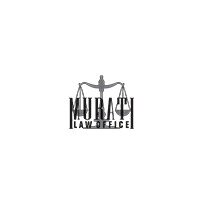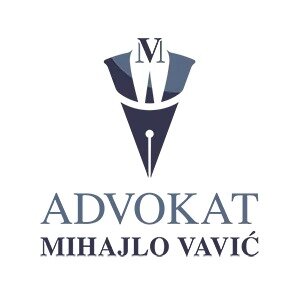Best Inheritance Law Lawyers in Montenegro
Share your needs with us, get contacted by law firms.
Free. Takes 2 min.
Or refine your search by selecting a city:
List of the best lawyers in Montenegro
1. About Inheritance Law in Montenegro
Inheritance law in Montenegro governs how a deceased person’s assets pass to heirs. It covers both testamentary transfers and statutory (intestine) succession. The system aims to balance adult autonomy with protection for close family members recognized by law.
Key elements include the validity and force of a will, the rules for who inherits when there is no will, and how real property and other assets are transferred to heirs. Notaries and courts play distinct roles in confirming inventories, distributing assets, and resolving disputes. Inheritance affects movables, real estate, banking assets, debts, and guardianship for minor heirs when needed.
Jurisdiction-specific nuance matters. Montenegrin law recognizes both testate succession (will-based transfer) and intestate succession (no will). The distribution order for legal heirs and the protection of a forced share are central themes in practice. For any significant estate, professional guidance from an advokat (lawyer) or a qualified notary is often essential to avoid delays and errors.
Source: Legislationline - Montenegro provides an overview of the Law on Inheritance, including the order of legal heirs and form requirements for wills. Legislationline
For practical context on how property and real rights are managed during inheritance, official statistics and legal texts from Montenegro’s authorities provide essential background. Important note: always verify the current text of the law as amendments occur frequently.
Source: Monstat - Statistics and public information related to property, population, and administrative processes in Montenegro. Monstat
2. Why You May Need a Lawyer
Inheritance matters are often complex and time sensitive. A Montenegrin advokat (attorney) or legal counsel can help you navigate these specifics with accuracy and speed.
Contesting a will or defending a will validity
If you suspect coercion, fraud, or invalid formalities in a will, a lawyer can evaluate the will’s validity, file challenges, and represent you in court or before a notary public. For example, a son challenges a parent’s will that excludes him in favor of a step-parent, and seeks recognition of a forced share.
Intestacy disputes and forced shares
When there is no will, a lawyer helps determine the legal order of heirs and the appropriate shares. A spouse, children, or parents may claim a forced portion of the estate under Montenegrin law, and a lawyer can calculate and defend these shares in court.
Real estate inherited across multiple municipalities
Transfer of inherited real estate requires accurate title updates in the Real Estate Cadastre. A lawyer coordinates with notaries and the cadastre to ensure clean title passes to the rightful heir, minimizing future disputes.
Estate inventory, debts, and creditor claims
A lawyer helps assemble a complete inventory, identify outstanding debts, and negotiate payment or priority among creditors. This reduces claims against heirs and prevents stalls in distribution.
Guardianship and care for minor heirs
If heirs include minors or dependents, a lawyer can assist with guardianship arrangements, court approvals, and safeguarding assets until the heirs reach adulthood or release conditions are met.
Cross-border or multi-jurisdictional issues
If assets are located abroad or heirs reside outside Montenegro, a lawyer coordinates with foreign counsel and local authorities to ensure seamless transfer and recognition of the inheritance.
3. Local Laws Overview
Montenegro’s inheritance framework is built around several core laws and regulations. The primary statute is the Law on Inheritance, which governs how estates are distributed among heirs and the formal requirements for wills. Other relevant laws address real property transfers and civil procedure for disputes.
- Zakon o nasljeđivanju (Law on Inheritance) - governs statutory and testamentary succession, the order of legal heirs, and the rights of forced heirs. This law determines who inherits when there is no will and under what conditions a will is valid.
- Zakon o vlasništvu i drugim stvarnim pravima (Law on Ownership and Other Real Rights) - addresses the transfer and registration of real property through inheritance, including entries in the Real Estate Cadastre.
- Zakon o parničnom postupku (Civil Proceedings Law) - covers process and timelines for inheritance disputes brought before courts, including procedural steps, evidence, and appeals.
Recent changes and amendments to these laws are published in the Official Gazette and are periodically updated. When engaging in inheritance matters, verify the current text of the Law on Inheritance and related regulations with an advokat or via reputable legal databases.
Source: Legislationline - overview of Montenegrin inheritance law, including statutory heirs and will formalities. Legislationline
Source: Monstat - references to property transfers and civil administrative processes relevant to inheritance. Monstat
4. Frequently Asked Questions
What is the difference between a will and intestate succession?
A will directs how assets should pass after death. Intestate succession applies when there is no valid will and legal heirs inherit by statute.
How do I start an inheritance case in Montenegro?
Contact an advokat to assess whether a will exists, gather documents, and file with the court or notary for probate. The process begins with a formal inventory and determination of heirs.
When is a will valid under Montenegrin law?
A will must meet formal requirements, be signed by testator, and, if needed, witnessed as prescribed. The exact form depends on the will type used in Montenegro.
Where do I file an inheritance claim or dispute?
Disputes are generally addressed in the appropriate court or with a public notary, depending on the case and whether a probate procedure is involved.
Why do I need a lawyer for inheritance matters?
A lawyer provides guidance on legal rights, helps prepare documents, and represents you in negotiations or court. This reduces delays and ensures proper filings.
Can I contest a will in Montenegro?
Yes, you can contest a will on grounds such as lack of capacity, coercion, fraud, or improper execution. Legal representation improves chances of success.
Should I use a notary or a court for probate?
Notaries handle many straightforward estates and signoffs. Courts intervene for disputes, contested wills, or when inventory and distribution require judicial supervision.
Do I need to pay court or notary fees in inheritance cases?
Yes, there are standard fees for notarial services and court proceedings. Fees vary by case complexity and asset value.
Is it possible to contest a will after death?
Yes, but timeliness matters. Contestation typically must occur within prescribed periods after discovery of grounds for challenge.
How long does the inheritance process take in Montenegro?
Simple cases may conclude in a few months; complex estates with real estate and disputes can extend to 6-18 months or longer.
What documents are typically required to start inheritance proceedings?
Common documents include death certificate, will (if any), heirs’ identification, proof of ownership for real estate, and estate inventory. Additional items may apply.
Do foreign heirs have rights in Montenegro?
Yes, foreign nationals may inherit, but cross-border procedures may require additional confirmations, translations, and cooperation with foreign authorities.
5. Additional Resources
- Legislationline - International and national legislation texts; useful for the Montenegrin Law on Inheritance. Legislationline
- Monstat - Official statistics and public information on population, property and administrative processes in Montenegro. Monstat
- World Bank Montenegro - Data and analysis on legal and institutional reforms, including property and governance indicators relevant to inheritance contexts. World Bank Montenegro
6. Next Steps
- Define your inheritance objective and collect all relevant documents within 1-2 weeks. Gather a death certificate, any will, family documents, and asset lists.
- Identify a Montenegro-licensed advokat with inheritance experience. Ask for at least 2 references and confirm fees in writing within 1 week.
- Schedule an initial consultation. Prepare questions about whether a will exists, the type of succession, and potential timeframes. Plan for a 45-60 minute meeting.
- Decide the procedural path (notary probate vs court dispute). Request a preliminary opinion from your lawyer within 3-7 days of the initial consult.
- Initiate the appropriate filing or notification process. Expect inventory, heir verification, and any necessary publishing or notices within 2-6 weeks.
- Monitor progress and costs. Set monthly check-ins with your advokat and request progress reports to avoid delays or unexpected fees.
Lawzana helps you find the best lawyers and law firms in Montenegro through a curated and pre-screened list of qualified legal professionals. Our platform offers rankings and detailed profiles of attorneys and law firms, allowing you to compare based on practice areas, including Inheritance Law, experience, and client feedback.
Each profile includes a description of the firm's areas of practice, client reviews, team members and partners, year of establishment, spoken languages, office locations, contact information, social media presence, and any published articles or resources. Most firms on our platform speak English and are experienced in both local and international legal matters.
Get a quote from top-rated law firms in Montenegro — quickly, securely, and without unnecessary hassle.
Disclaimer:
The information provided on this page is for general informational purposes only and does not constitute legal advice. While we strive to ensure the accuracy and relevance of the content, legal information may change over time, and interpretations of the law can vary. You should always consult with a qualified legal professional for advice specific to your situation.
We disclaim all liability for actions taken or not taken based on the content of this page. If you believe any information is incorrect or outdated, please contact us, and we will review and update it where appropriate.
Browse inheritance law law firms by city in Montenegro
Refine your search by selecting a city.









